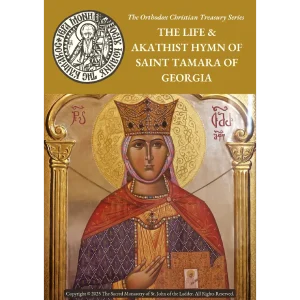Homily on Genesis 1 and Fasting by St. John Chrysostom

1. The announcement of Lent is to be welcomed with joy, because it is a remedy for the ills of our souls. Fasting and abstinence produce an infinity of goods, while intemperance has brought into the world sin and death. – 2. Example of Adam and Eve, the inhabitants of Sodom and the Israelites in the desert. -3. On the contrary, by the young, Elijah was taken to heaven, Daniel chained the fierceness of the lions, and the Ninevites obtained forgiveness (their iniquities.) – Jesus Christ himself wanted to fast for forty days, and it was at his imitation that the Church has adopted this number in holy Lent.-4. The salutary influence of fasting, and the fatal consequences of intemperance
1. I am overflowing with joy and gladness when I see today the crowd of the faithful fill the church of God, and I praise the pious eagerness which gathers you there. So, the laughing flourishing of your features-it is a sure sign of the satisfaction of your souls: for the Sage has said that the joy of the heart shines on the face. (Prov.XV, 13.) This is why I myself go full of enthusiasm to take part in the spiritual joy of all of you, and to announce the return of this holy quarantine which brings us the healing of the evils of soul. And indeed, the Lord, as a good father, desires nothing so much as to forgive us our old faults; and that is why he offers us in the holy Lent the easy atonement. Let no one be sad and sorrowful, and let everyone, full of joy and gladness, celebrate the divine physician of our souls who opens this way of salvation to us, and welcome the announcement of these blessed days. Let the Gentiles be confounded, and let the Jews blush at seeing what zeal breaks out among us at the approach of Lent, and that they know by their own experience the immense interval that separates them from us. They call fetes and festivals these days that they will probably spend in the excesses of the table, wine and pleasures; but the Church of God practices the virtues opposed to these vices, she loves fasting, and seeks the salutary results of abstinence. These are his holidays. And are they not really feasts, these days when one is occupied with the salvation of one’s hearth, and where peace and harmony reign in the city; then we cut off almost all the preoccupations of life, the noise of the forum, the tumult of the markets, the eagerness of the cooks and the bloody functions of the butchers. But how to depict repose and calm, charity and joy, peace and gentleness and all the innumerable goods that the return of Lent promises us!
Suffer, my dear brothers, that I say a few words to you. And first of all I pray you to receive my word with kindness, so that you may bring it back to your houses of happy fruit. For we have not gathered here as at random, I to speak to you, to applaud you, and then to withdraw; but I have come to give you a word useful to your salvation, so that you do not leave this temple without having gathered from my mouth important and salutary instructions. The church is the treasure of the remedies of the soul; and those who come here must not retire unless they have previously received the remedies which suit them, and have not applied them to their wounds. And indeed, it serves little to listen if you do not reduce in practice what you hear. So St. Paul tells us that it is not those who listen to the law who are just in the sight of God; but that it is those who practice it that will be justified. (Romans 2:13) And the Savior Himself speaks to us in his Gospel: All who say to me, Lord, Lord, shall not enter the kingdom of heaven; but he who does the will of my Father who is in heaven. (Matthew VII, 21.) Therefore, my beloved, since you know that the hearing of the holy word is only really useful as long as it translates into good coverings, do not confine yourself to listen to it, but make it the rule of your conduct, that, seeing the salutary fruits of our speeches, we speak to you with new confidence. Deploy all the benevolence of your soul to hear what I have to say about fasting. The fiance who is to marry a chaste and modest virgin adorns his house with rich furnishings; he establishes order and cleanliness, and he drives out licentious and immodest servants; only then does he introduce his wife into the nuptial chamber; and in the same way, I would like you, jealous of purifying your souls, to say goodbye to the delights of the table and to the intemperance of feasts, and to reserve a kindly welcome for fasting, for it is for us the source and the principle of all the goods, no less than the school of chastity and all virtues. It will also be the way to start it with more joy and to obtain more beneficial fruits. The doctor prescribes a severe diet as preparation for energetic purgation; He wishes thus that the strength of the remedy is not irritated by any obstacle and that it acts with complete efficiency. But is it not still more necessary to purify our souls by an exact sobriety, so that fasting produces in us all its salutary effects, and that intemperance does not make us lose the happy fruits?
2. I do not doubt that many do not tax this language of strangeness; but I ask them not to surrender the slaves of custom, and to listen peacefully to the voice of reason. Ah! what advantages can it be for us to consume this day in the pleasures of latable and the excesses of wine? And what about benefits? we can only collect an infinity of evils and inconveniences. Whenever reason drowns itself under the waves of wine, we dry up in their source and in their principle the graces of fasting and abstinence. And what a sight more hideous and more repulsive than that of those men who spent the whole night in the orgies of drunkenness, and who at dawn and the first rays of the sun, exhale the stinking odor of wine they filled up? Whoever meets them only approaches them with disgust, their servants look at them with an eye of contempt, and they become an object of mockery to all who retain some decency: But what is even sadder is that by their excesses and their criminal intemperance they draw on them the wrath of God; for the drunkards, says the Apostle, will not possess the kingdom of God. (I Corinthians VII, 10.) Eh! what greater misfortune than being excluded from the heavenly courts for such a short and fatal pleasure! God forbid that any of my listeners be addicted to this shameful passion! I wish on the contrary that all spend this day in a wise restraint, so that safe from the storms and storms excited by drunkenness, they open to fast the calm and peaceful port of a sober and temperate soul . This is how they will gather the abundant fruits.
And in fact, just as the excess of meat and wine entails for man an infinity of evils, fasting and abstinence produce for him an infinity of goods. So from the beginning, God made a precept to the first man, for he knew that this remedy was necessary for the salvation of his soul. You can eat, he tells him, of all the fruits of the garden; but do not eat the fruit of the tree of the science of good and evil. (Gen. II, 16.) Now, to say eat this, and do not eat it, was it not the law of fasting? Alas! Adam, who should have kept this precept, transgressed him, he was overcome by the vice of intemperance, and because of his disobedience condemned to death. The demon, that wicked spirit, and man’s enemy could not see without envy that in our earthly paradise our first parents lived a happy life and that in a mortal body they preserved an angelic innocence. That is why he tried to make him fall from this happy state, and by promising him still more excellent goods, he stripped him of those he possessed, so dangerous is it not to become confined to legitimate bounds, and to always aspire above oneself! The Sage himself warns us when he says that by Satan’s envy death has entered the world. (Sag.2, 24.) You see then, my dear brethren, how at the beginning of time intemperance brought death; and now I call your attention to these two passages of Holy Scripture, where it condemns pleasures and good food. The people sat down to eat and drink, and all rose to dance. The beloved people drank and ate; appeased, satiated, intoxicated, he abandoned the God his creator. (Exodus XXXII, 6, Deut, XXXII, 15.) It was also by these same excesses, together with their other crimes, that the inhabitants of Sodom drew upon them the vengeance of the Lord. For the Prophet expressly says that the iniquity of Sodom was the intemperance and pleasures of the flesh. (Ezek XVI, 49.) This vice is therefore the source, and the root of all evils.
3. But to these fatal consequences of (intemperance) we oppose the happy results of fasting: After a fast of forty days, Moses deserved to receive the tables of the law, but as he lives, descending from the mountain, the sacrileges of the iniquities of the people. He threw down and smashed those same tables which had cost him so much effort and privation, for it seemed to him absurd that a voracious and voluptuous people should receive divine legislation, and so this admirable prophet needed to fast. again, forty days, to receive again and bring those same tables which he had broken as a punishment for the crimes of the people. It was by a similar fast that the great Elijah was able to escape the tyranny of death. To heaven in a chariot of fire, even today he is alive, and Daniel, the man of desire, saw his long fasts rewarded by admirable revelations, and changed the ferocity of the lions into the sweetness of the lambs. Doubtless, he did not destroy in them the instinct of nature, but he suspended its voracity. Finally, the Ninevites disarmed the vengeance of the Lord with rigorous fasting, they subjugated animals as well as men, and each one leaving his evil ways, they experienced the effects of divine mercy.
But it is useless to multiply here the examples of the servants: and how many features would not give me the Old and the New Testament! it is better to stop at the very person of our common Master. Now the divine Savior Jesus wanted to fast for forty days in order to prepare himself for temptation and to teach us by his example that he must be like him, to arm us with fasting, and to draw from it the forces necessary to fight victoriously against the devil. But here perhaps some good spirit or some deep reasoner will ask me why the Master has fasted exactly the same number of days as the servants, and why he did not want to exceed this number? I answer them that this conduct, far from being useless and reckless, is full of wisdom and ineffable mercy. He wanted to fast to show that his body was real and not fantastic; and he wanted to confine himself to forty days of fasting to prove that his flesh was like ours. Thus, in advance, he refuted the insolence of these curious and disputant minds. And indeed, if, in spite of this disposition of things and facts, some raise such objections, what would they not say, if the Savior had not cut short all the pretexts of their unbelief? Yes, he has fasted exactly the same number of days as his servants, to convince us that he clothed himself with a flesh (6) very similar to ours and that he was no stranger to our nature.
4. And now, when I have shown you the excellence and the usefulness of fasting, and I have set before you the example of the Divine Master and his servants, I beseech you, my dear brethren, do not neglect the great advantages attached to it. Do not sadly welcome the return of these days of salvation, but rejoice, and be full of joy, because, according to the word of the Apostle, the weaker the man outside, the more the man interior is renewed. (II Corinthians IV, 16.) Fasting is indeed like the food of the soul; and as the dishes of our tables maintain the health of the body, the fast communicates to the soul a new vigor. He gives it as two light wings that raise it, far from the horizon of the earth, to the contemplation of the most sublime mysteries. And it is then that this soul hovers above the pleasures of this life, and all the pleasures of the senses. We see again that a light skiff easily cruises the waves, while an overloaded vessel perishes by its own weight. Thus the fast that alleviates the spirit, makes it more agile to cross the sea of this world. Our eyes are turned to heaven and the things of heaven, and our thoughts despise the goods of the earth which appear to us only a shadow and a dream. On the contrary, drunkenness and intemperance burden the mind by overloading the body. They make the soul captivate the senses, press it on all sides, and deprive it of the free exercise of judgment and reason. So this soul goes astray here and there through precipices and runs infallibly to its ruin.
Wherefore, my dear brethren, let us enter with holy ardor into the salutary practice of fasting; and since we are not unaware of the evils which intemperance produces, let us flee the fatal consequences. No doubt the Gospel, which prescribes a more refined morality, which proposes to us a more difficult struggle and greater fatigue, and which promises us a more beautiful reward and a more brilliant crown, strictly forbids us the excesses of the table. But the ancient law itself also forbade intemperance, and yet the Jews still saw all things in figures, and waited for true light. They were like young children fed milk. Perhaps you will accuse me of speaking thus at random, and without proof; Listen, then, to the prophet Amos: Woe to you who are reserved for the evil day, who sleep on ivory beds and lie down softly on your couch, who eat the chosen lambs and the fatest heifers, who drink the wines the more delicate, and you perfume the most exquisite essences, and consider these pleasures as a stable and permanent good, and not as a fugitive dream! (Amos, VI, 3-6.) This harsh language the Prophet uttered to the Jews, a rude, ungrateful people, and daily devoted to the pleasures of the senses. It is not useless either to weigh the expressions he uses, and to observe that after reproaching them with their inclination to drunkenness and debauchery, he adds that they considered these pleasures a stable good. and permanent, and not as a fugitive dream. Is it not to warn us that these pleasures stop at the throat, and merely flatter the palate?
The pleasure is short and momentary, but the pain it causes is long and lasting. And yet, says the Prophet, in spite of the lessons of experience, the Jews stubbornly regarded pleasure as a stable and permanent good, while it is only a fleeting enjoyment. Yes, the pleasure flies away quickly, and we can not fix it even a few moments. For such is the destiny of human and sensible things. Hardly do we possess them that they escape us. Such is also the nature of the delights, the glory of the world, the power, the riches, and the prosperity of life. They offer us nothing solid or assured; nothing fixed or permanent. They flow more rapidly than the water of the rivers, and leave empty, and destitute all those who seek them with so eager eagerness. But on the contrary, spiritual goods present us with a very different character. They are firm, assured, constant and eternal. Would it not be a strange folly to exchange a passing pleasure for immutable goods, for momentary pleasures against immortal happiness, and frivolous and rapid pleasures against a true and eternal happiness? Finally, some expose us to the dreadful torments of hell, while the others will make us supremely happy in the sky. Thus, my dear brothers, (7) these truths, seriously pondered, cause our salvation to be given all our attention, to despise the pleasures of the senses, vain and dangerous pleasures, and to joyfully embrace fasting and its salutary practices. Let us show by all our conduct that we are truly changed, and let us hasten to multiply our good works every day. Thus, after having, during the holy season of Lent, enlarged our spiritual riches, and increased the treasure of our merits, we will happily attain the holy day of the Lord. In this day we will be able to sit down with confidence at the formidable table of the divine banquet, to participate in it with a pure awareness of ineffable delights, and to receive the eternal goods and abundant graces that the Lord has prepared for us. . May we obtain this grace by the prayers and the intercession of the saints who have pleased themselves to Jesus Christ our divine Savior, to whom be, with the Father and the Holy Spirit, the glory, the empire and honor, now, and forever and ever! – So be it.







